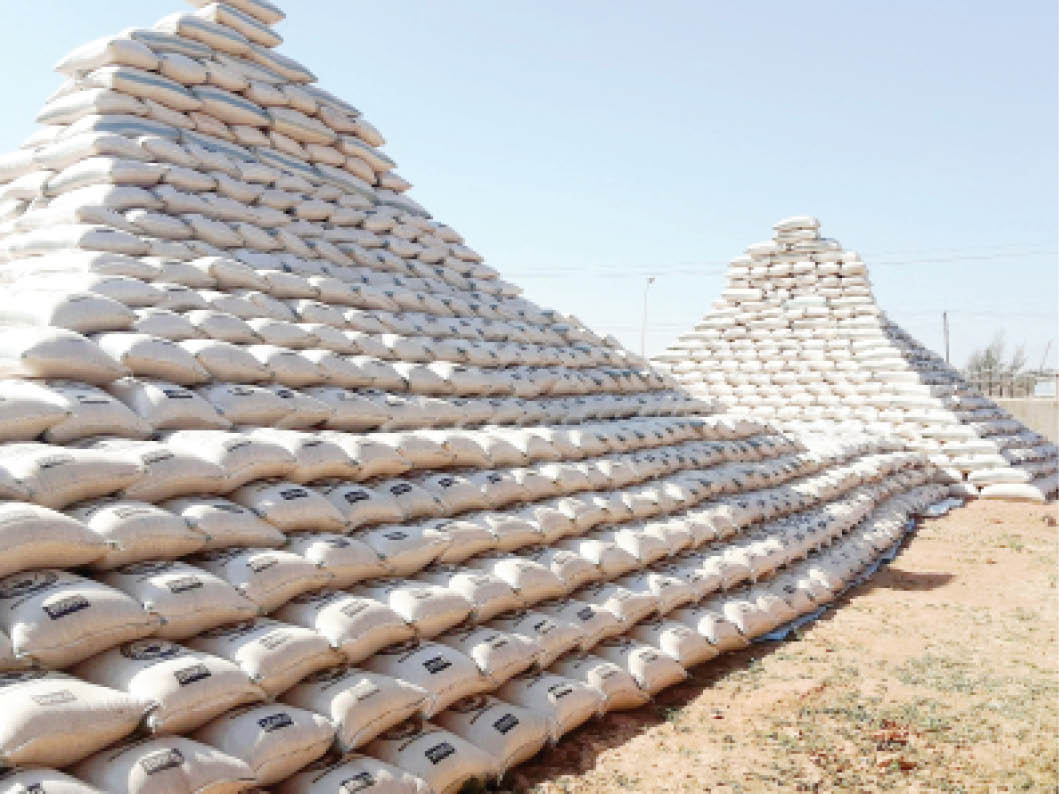The reopening of four land borders by the Federal Government last week has significantly slowed down hoarding activities in Katsina markets, Daily Trust can report.
Prior to the announcement, grain merchants and other businessmen hid under the guise of company agents to buy farm produce in bulk and store to maximise profit in the near future.
According to dealers, despite the restriction on the importation of rice and other food items, merchants were still skeptical to stockpile farm produce as government might change its decision anytime, depending on the circumstance on ground.
Alhaji Aminu Hussain, a sorghum merchant, said hoarding of farm produce was not a new business in the markets, but the practice seriously increased with the new agricultural policy of this administration and border closure.
“Many of us made huge profits on farm produce last year, that is why our people came out early in this harvest period, mopping up the produce; but the recent reopening of land borders has slowed us down.
“The fear among us now is that market price of food items will come down.”
He added that the shortfall of farm output, occasioned by incessant activities of bandits this year, had also motivated the merchants to hoard the produce.
Rice, maize and sorghum were the most targeted produce.
Mallam Muhammadu Tarzana, a grain dealer at Bakori market, said the announcement of border reopening last week had made an impact on the market price of major food items.
“Unlike last year when, by this time, maize was between N8,000 and N9,500, sorghum was N7,000, they are now sold at N14,000 and N13,000 respectively.
“The recent announcement of border reopening has crashed down the price of paddy rice from N14,000 to N12,000, sorghum from N14,500 to N13,000 and maize from N15,500 to N14,000.”
Tarzana added that most merchants withdrew from bulk purchase of the produce after the announcement, expecting that waivers for the importation of food items would follow anytime soon.
Our correspondent observed that there are mixed reactions to the land border opening.
Majority of the farmers and merchants prefer the borders to be closed so that they would continue to exploit the numerous value chains of our local agricultural produce.
Consumers, on the other hand, welcomed the recent development, in anticipation that government would allow importation of rice and other food items.
But their expectation was shattered by government’s reiteration that rice, poultry, cooking oil and other food items remained banned from importation.
Sani Mu’azu Hunkuyi, an agric expert, enjoined the Federal Government not to bow to pressure and give waivers for food importation.
“Government has invested a lot in the agricultural sector and we should not allow such huge investment to go down the drain by wavering food importation in this country.
“It is true that there is palpable fear of food crisis, but we can mitigate that through irrigation farming. Besides, food importation will only worsen the already economic recession the country is battling with,” Mu’azu said.
He added that farmers would be seriously affected if government reversed its policy on food sufficiency.




